|
|
|
Chair
Jeffrey Schoenebeck
The Roslin Institute (University of Edinburgh)
Midlothian, United Kingdom
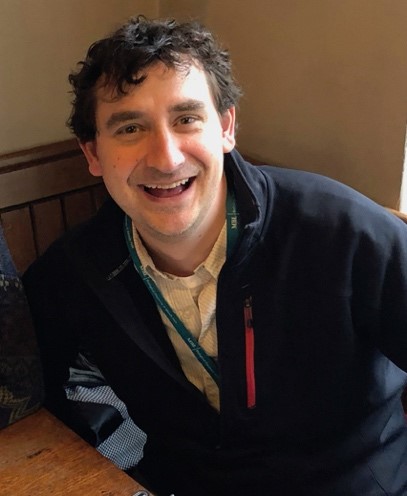
Term of service (2nd, 2021–2025)
Jeffrey Schoenebeck received his BS in biology at The Pennsylvania State University in 1999 and his PhD in developmental genetics at the New York University of School of Medicine in 2006, where he studied zebrafish cardiac fate specification. He started his postdoctoral training at the National Human Genome Institute (Bethesda, MD) in 2007. During this time, he was awarded a Postdoctoral Research Associate Training (PRAT) fellowship (National Institute of Generalized Medical Sciences). He applied geometric morphometrics for use in QTL mapping of canine skull and skeletal traits. In 2014, he was awarded a University of Edinburgh Chancellor’s fellowship to pursue independent research. He was promoted to group leader in 2020. Schoenebeck is based at the Roslin Institute and cross-appointed to the Royal (Dick) School of Veterinary Studies. He has long-standing interests in developmental and functional genetics/genomics and their intersection with animals’ morphological forms and conformation-related morbidities. The Schoenebeck group’s interests in animal genetics span companion and production animals. Schoenebeck led the production of ROS_Cfam_1.0, the Labrador retriever reference genome assembly. He lectures both undergraduate and graduate students.
Member
Katharine Evans
The Seeing Eye Inc
Morristown, NJ United States
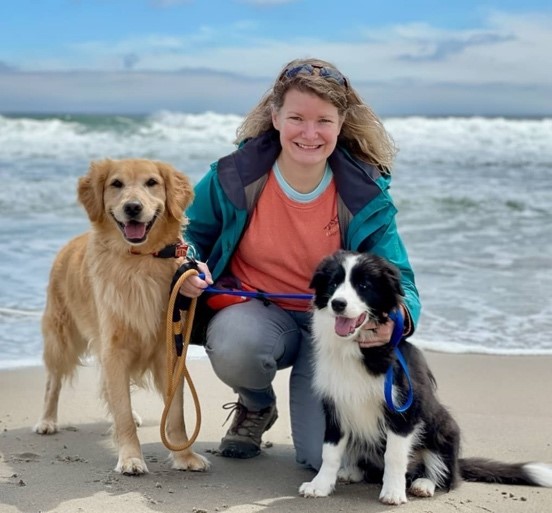
Term of service (1st, 2021-2025)
Katy Evans qualified as a veterinarian from the University of Bristol in 2001. After almost 7 years of clinical work, she undertook a Postgraduate Studentship in Small Animal Epidemiology at the Animal Health Trust, Newmarket, 2007-2010, funded by the Kennel Club Charitable Trust. This included working with survey data to investigate patterns of disease in particular dog breeds, while gaining an MSc in Veterinary Epidemiology and Public Health from the Royal Veterinary College, London.
Katy then took up a PhD Studentship, based at the Animal Health Trust, registered with the University of Nottingham and part funded by Guide Dogs UK. This entailed working with Guide Dogs’ historical health and behavioral data to investigate the potential for estimated breeding values (EBVs) for traits of interest, to improve the accuracy of selection decisions. In January 2015 she successfully defended her thesis, entitled ‘Genetic evaluation of guide dogs in the UK’. She spent two years as a Postdoctoral Research Fellow at Nottingham, working to turn the findings of her PhD into workable tools for Guide Dogs UK. Two years at the Kennel Club in London as Health Research Manager followed, with the key focus of Katy’s time there being getting the ‘Breed Health and Conservation Plans’ project off the ground.
In January 2019, Katy started her dream job as the Jane H. Booker Chair in Canine Genetics at The Seeing Eye in Morristown, New Jersey, overseeing the breeding program at the oldest still existing guide dog school in the world.
Member
Robert Grahn
University of California-Veterinary Genetics Laboratory
Davis, CA United States
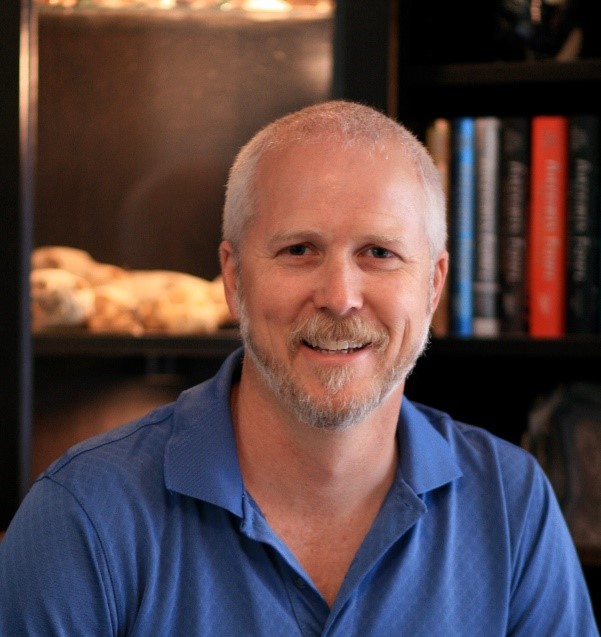
Term of service (3rd, 2023-2027)
Dr. Grahn received his bachelor’s degree in zoology from the University of California, Davis. He completed his doctoral training in biology from the University of Idaho, Moscow, where he studied the molecular systematics of South American rodents using retrotransposable elements. After the completion of his Ph.D., Dr. Grahn returned to UC Davis and spent 14 years investigating inherited genetic diseases and expanding available forensic resources for domestic cats with Dr. Leslie Lyons. In 2013, Dr. Grahn joined the Veterinary Genetics Laboratory in order to expand the portfolio of available genetic tests in domesticated mammalian species. In 2019, he was appointed as the Associate Director of Service and Test Development at the VGL, managing the commercial testing units while continuing to actively participate in research of inherited genetic diseases across domesticated species. Additionally, as either a forensic analyst or technical reviewer, Dr. Grahn has participated in over 200 criminal cases involving domestic animals and was recently appointed as the Associate Director of the VGL Forensics Unit.
Member
Gabriela Rudd Garces
Generatio GmbH
Heidelberg, Germany
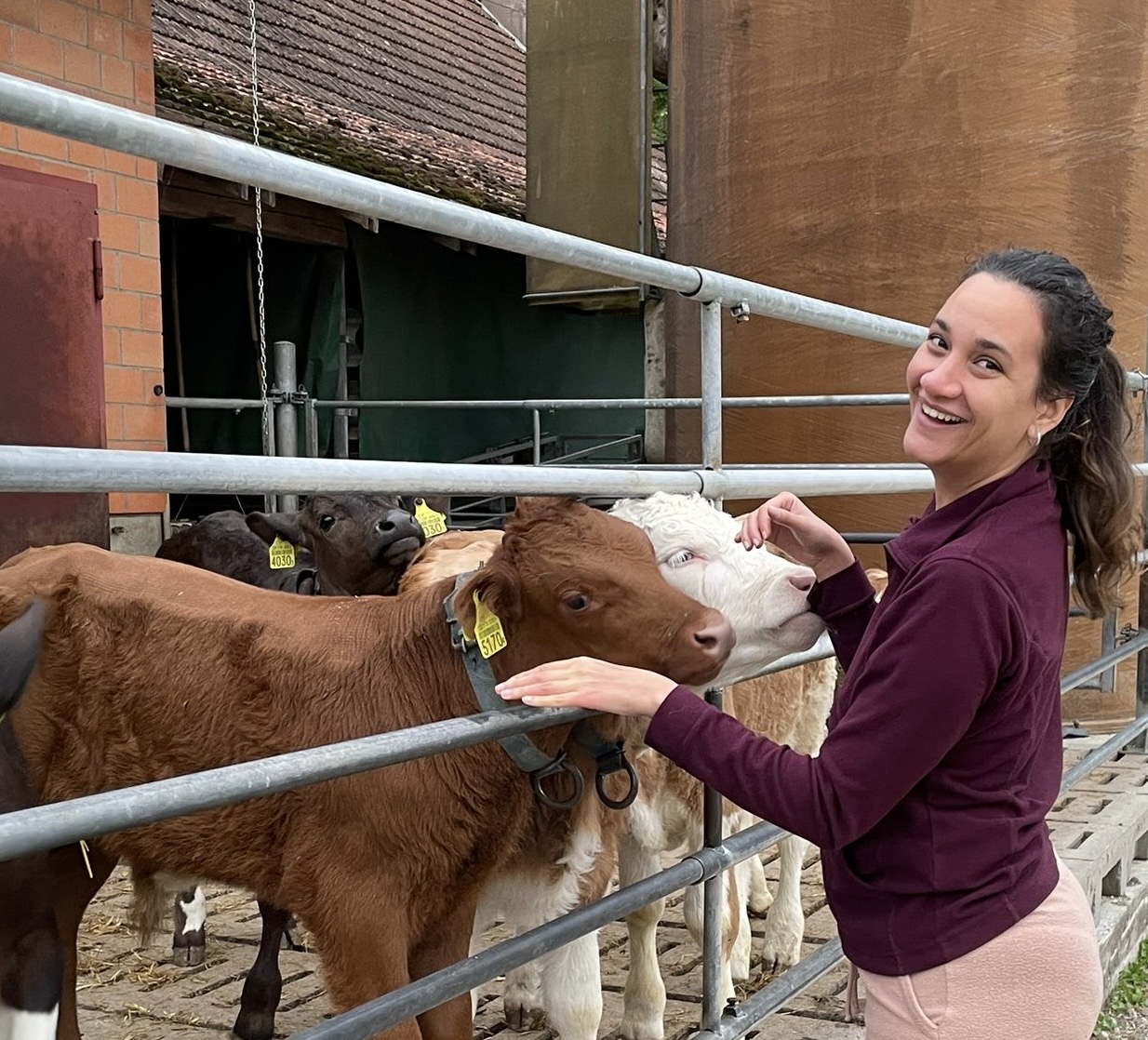
Term of service (1st, 2023-2027)
Gabriela Rudd-Garces earned her PhD in 2022, focusing on the molecular genetic characterization of osteo-articular diseases in dogs and cats. Her doctoral studies were conducted at the National University of La Plata, Argentina, and the University of Bern, Switzerland. Upon completing her PhD, she joined the Institute for Animal Breeding and Genetics at Justus-Liebig University Gießen as a postdoctoral researcher. During her time there, she specialized in computational biology methods and conducted studies into the identification of causative genetic variants for heritable phenotypes in pets and farm animals. Her work contributed to the discovery of genetic variants responsible for skeletal dysplasia, auditory-pigmentary syndrome, and neurological and eye disorders in several domestic species. In 2024, Rudd-Garces took on the role of research and development manager at Generatio GmbH, a company specializing in genetic diagnostics for domestic animals. In this position, she oversees strategic research initiatives to advance animal health and welfare through state-of-the-art diagnostic solutions.
Member
Nicole Tate
University of Minnesota - College of Veterinary Medicine
Isanti, MN United States
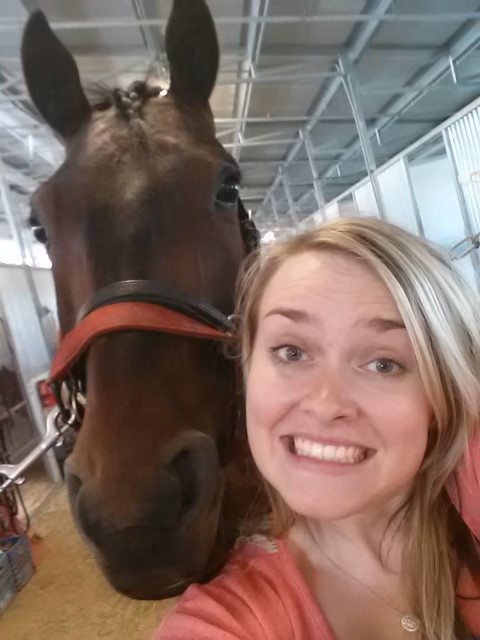
Term of service (1st, 2021-2025)
Nicole Tate received her animal science degree from the University of Wisconsin–River Falls in 2014. Soon after, Tate accepted a position as the laboratory manager of the University of Minnesota’s Equine Genetics and Genomics Laboratory and as a senior laboratory technician in the Canine Genetics Laboratory. She has worked on a wide variety of projects ranging from rare urinary tract stones in dogs, cats, and goats to performance traits in horses. Her experiences and research led her to pursue a graduate degree at the University of Minnesota in the Canine Genetics Laboratory and under the advisement of Eva Furrow. Tate’s thesis work aims to identify the metabolic disturbances and genetic variants associated with hyperlipidemia in dogs. She is planning to defend in early 2022.
Member
Wesley Warren
University of Missouri
columbia, MO United States

Term of service (2nd, 2023-2027)
Dr. Warren received his B.S. degree in animal sciences from the Oklahoma State University in 1984, M.S. degree from Clemson University in reproductive physiology in 1987 and Ph.D. from the University of Missouri in molecular endocrinology in 1990. A post-doctoral fellowship was completed at G.D. Searle Pharmaceutical before joining Monsanto Company in 1991, where from 1992 to 1999 he held several leadership roles including group manager of genome initiatives. Prior to joining Washington University School of Medicine, he was Senior Director of Operations at Incyte Genomics. Dr. Warren joined the McDonnell Genome Institute in 2001 where he held various appointments as Assistant Director, Associate Professor of Genetics, a secondary appointment in Molecular Microbiology, both in the Washington University School of Medicine and affiliate scientist position at the St Louis Zoo. Dr. Warren is currently a Professor of Genomics, at the Bond Life Sciences Center and he is an internationally recognized expert in comparative genomics. He has received the honor of being published multiple times on the cover of Nature publications featuring the chicken, platypus, orangutan, elephant shark, and Y chromosomes and most recently the hummingbird on the cover of Nature. The application of evolutionary medicine practices toward the identification of molecular mechanisms of action for a variety of traits unique to multiple phylums remains a key research focus for Dr. Warren. Dr. Warren's research group uses various whole genome comparative and more recently single cell transcriptomic methods to examine changes in gene evolution and regulation, as a means to better understand human biology with a recent focus on comparative oncology. The identification of these species-specific gene aberrations in evolutionary time promises to engender new thoughts on the molecular workings of observed phenotypes such as cancer. Dr. Warren also leads campus-wide initiatives to adopt high-throughput sequencing technology. He is the author of four book chapters, and more than 180 peer-reviewed articles.
Member
Chesleigh Winfree
BioPet Laboratories
Knoxville, TN United States

Term of service (1st, 2023-2027)
Chesleigh Winfree is the Director of Laboratory Operations and Technical Lead at BioPet Laboratories where her tenure began in 2008. She has led scientific research and development of all genetic tests offered by BioPet Labs including co-inventor of the patent pending PooPrints DNA testing. Her experience in animal health began at the University of Tennessee College of Veterinary Medicine in orthopedic drug research and continued at BioPet Labs providing veterinary clinical diagnostic testing before a strict focus on genetics.
Chesleigh received a B.Sc in Ecology and Evolutionary Biology with a concentration in Pre-Veterinary Medicine from the University of Tennessee, Knoxville in 2005. She obtained a M.Sc. in Forensic DNA and Serology from the University of Florida and is an active member of the of the International Veterinary Forensic Sciences Association.
Mrs. Winfree diversified her skills into quality assurance after completing ANSI-ASQ auditor training serving as the Technical Lead at BioPet Labs developing and maintaining laboratory QMS for accreditation under the standards ISO/IEC: 17025:2017. She prioritized operational efficiencies within the laboratory while exceeding quality standards and holds a Lean Six Sigma green belt certification.
Mrs. Winfree designed and equipped BioPet Lab’s new high throughput commercial testing facility to optimize operations and exceed quality requirements while providing collaborative spaces fostering an entrepreneurial culture to increase analyst retention. She also serves as the company’s project manager for the patented DNA World Pet Registry with a focus on genotyping canines and databasing over 800,000 dogs to date.
|
|
